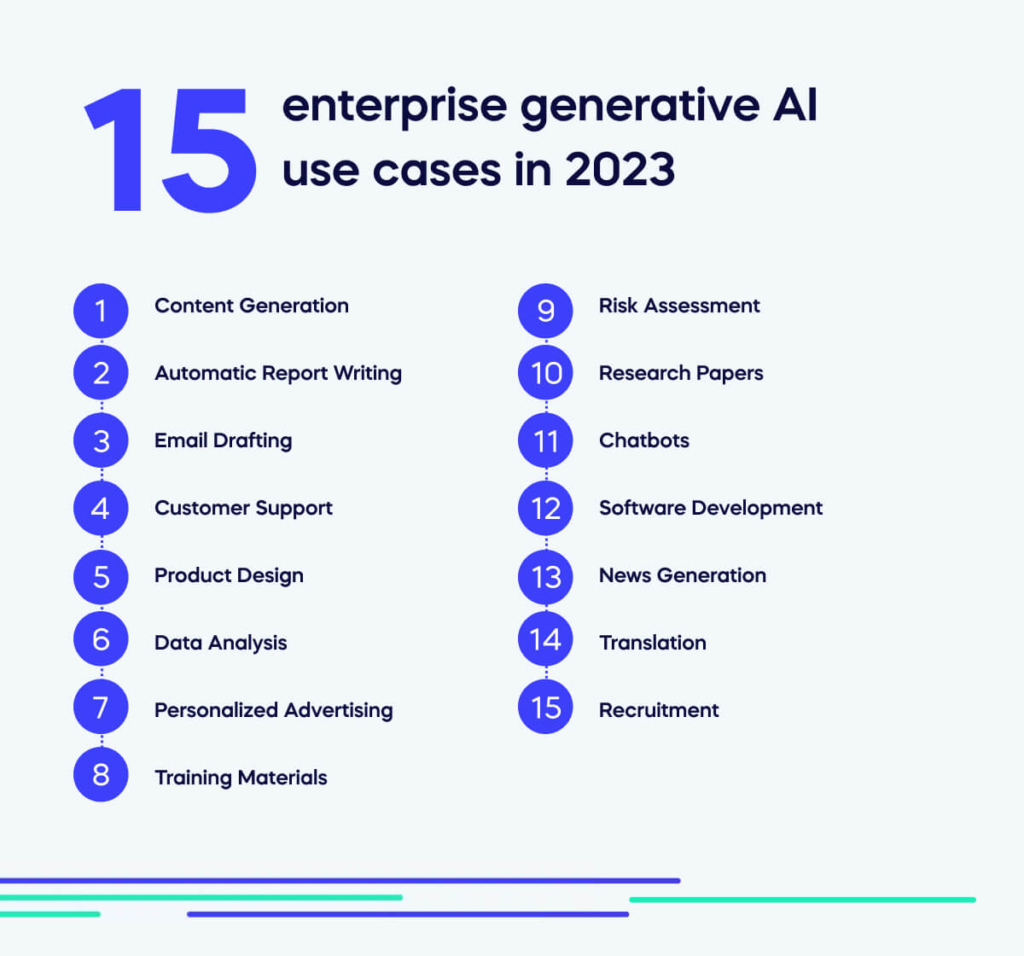In the ever-evolving landscape of enterprise data management (EDT), the year 2023 witnessed a paradigm shift, driven by the infusion of generative AI technologies. These advancements have not only reshaped how businesses approach data but have also set the stage for a data-centric future. As we delve into the transformative journey of EDT, the keyword “Generative AI” takes center stage, underlining the pivotal role this technology played in shaping the landscape of enterprise data management.
The generative AI revolution in EDT – A year in review
The first arena of transformation lies in data management, where the focus shifted towards utilizing AI to enhance how data is organized and accessed. Simultaneously, the data cloud sector experienced substantial growth, with businesses adopting flexible and scalable cloud-based solutions. This trend facilitated the integration of tools handling unstructured data, providing a comprehensive approach to data utilization.
In the realm of data protection and governance, there was a continuous effort to fortify security measures. Database technologies, empowered by generative AI, improved efficiency in handling and processing large data volumes. The integration of AI and machine learning (ML) further bolstered these platforms, enabling more profound and insightful analytical outcomes.
Fusing AI with data management – A symbiotic evolution
During the Dreamforce keynote, Salesforce’s CTO Parker Harris underlined the transformative nature of the AI revolution by emphasizing its inherent connection to a broader data revolution. This sentiment underscores the symbiotic relationship between AI and data. As businesses leverage generative AI for deeper insights, the greater accessibility of data revolutionizes information management. Enterprises can now tap into previously inaccessible data sources, unlocking valuable insights that were once overlooked.
Data cloud platforms undergoing a revolution
The incorporation of AI into data cloud platforms marked a significant leap in processing and analyzing data. Google, Salesforce, IBM, and AWS spearheaded this revolution with projects like Gemini, Duet AI, Vertex AI, Einstein 1 Platform, Data Cloud Vector Database, and watsonx. These innovations showcased a commitment to AI advancement and the development of sophisticated data management solutions.
With data privacy and security taking center stage, AI-driven automation emerged as a key player in governing compliance and cybersecurity processes. Veeam, Rubrik, Cohesity, and Commvault introduced solutions emphasizing data resilience, security cloud, AI-powered threat detection, and AI-infused data protection. The focus shifted towards ensuring quick data recovery and proactive monitoring to mitigate the risks of data breaches and cyber threats.
Noteworthy transformations in database technology
Advancements in AI and ML integration transformed database technology. Oracle’s AI Vector Search in Database 23c simplified interactions, while MongoDB introduced queryable encryption features. Collaborations like AWS and IBM integrating Amazon Relational Database Service with IBM Db2 showcased the trend of companies forming integrated ecosystems for scalable and diverse storage options.
Generative AI technologies played a crucial role in enhancing data integration capabilities. Software AG’s Super iPaaS, Cloudera’s generative AI-enabled features, and Informatica’s intelligent data management cloud platform exemplified the industry’s move towards adopting data lake house architectures. These architectures combine data lakes and data warehouses, addressing the challenges of handling large, varied data types across different industries.
Navigating the data-driven future in 2024
In this AI-driven era, the theme that emerges is the fundamental importance of data for businesses. The success of AI hinges on the quality of the data it processes. As AI technology advances and data quality improves, the symbiotic relationship between AI-driven personalization and customer engagement becomes a cornerstone of modern business strategy. The emphasis on data quality is critical for improving AI performance, setting the stage for a 2024 where accuracy and relevance of data take center stage, ensuring dependable AI insights. As we move into 2024, how can businesses ensure the accuracy and relevance of their data to maximize the potential of generative AI in providing dependable insights and enhancing customer engagement?





